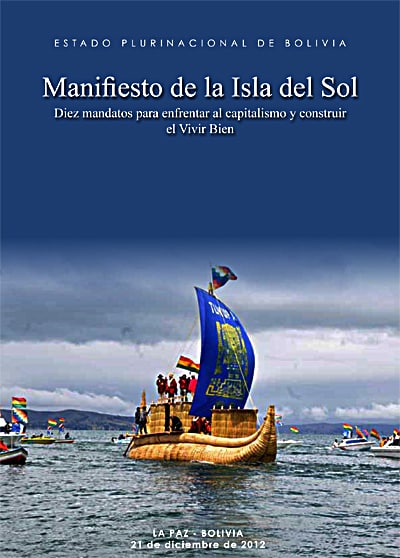Thailand: Protest letter demands: 'Free Somyot'!

Somyot Prueksakasemsuk.
Special offer: 35% off 'The Contradictions of “Real Socialism”' by Michael A. Lebowitz
[For more articles by or about Michael Lebowitz, click HERE. For a free excerpt from The Contradictions of "Real" Socialism: the conductor and the conducted, click HERE.]
January 18, 2013 -- Since Monthly Review Press published Michael A. Lebowitz’s The Contradictions of “Real Socialism”: The Conductor and the Conducted it has generated quite a bit of discussion. Building on concepts he developed in The Socialist Alternative, Lebowitz examines the record of “real socialism”—the post-revolutionary societies of the 20th century, particularly in Russia and Eastern Europe. He makes a provocative argument that has implications for how we understand socialist planning and the struggle for socialism in the 21st century.
Now, Monthly Review Press is offering a special discount of 35% off the list price and has asked Links International Journal of Socialist Renewal to make this offer available to its readers. This offer is good until the end of January.
Britain: Reflections on the crisis in the Socialist Workers Party

"As an important part of the English-speaking left, the SWP over the years has influenced many individuals and groups.
[For more on Evo Morales and Bolivia, click HERE.]
January 15, 2013 -- Climate and Capitalism/Life on the Left, posted at Links International Journal of Socialist Renewal with permission -- On December 21, 2012, at a solstice celebration in Lake Titicaca, high in the Andes, Bolivia's president Evo Morales introduced the Manifesto of Isla del Sol. His talk, translated below, includes the full text of the manifesto.

By Mercia Andrews
January 13, 2013 -- International Viewpoint -- The protests and mobilisation that started in the small town of De Doorns on November 6, 2012, galvanised the anger of farm dwellers against decades of discontent at extreme exploitation and oppression that persist on farms, in rural towns and South Africa's agricultural sector.
Argentina: Kidnapping and forced prostitution verdict causes uproar

The case of Marita Veron would never have reached the courts except for the extraordinary courage, strength and persistence of Marita’s mother, Susana Trimarco, who fought obstructions by police, highly placed
Forgotten legacies of Bolshevism on revolutionary organisation

"Iskra. It is often argued that the early period of the organisation of Iskra resembled the small, highly homogenous and monolithic cadre grouping that today is promoted as the sine qua non of revolutionary organisation, but if one looks at the original concept of the Iskra editorial board, we can see it promoted debate among a plurality of tendencies."
[Click HERE for more discussion on revolutionary organisation.]
Salvador Allende, Cuba and internationalism, 1970–73

Fidel Castro with Chile's President Salvador Allende upon his arrival at Pudahuel Airport in Santiago on November 10, 1971.
[For more articles by John Riddell, click HERE.]
By John Riddell
January 6, 2013 -- Johnriddell.wordpress.com, posted at Links International Journal of Socialist Renewal with permission -- 2013 marks the 40th anniversary of the US-inspired rightist coup in Chile that overthrew the leftist government of Salvador Allende on September 11, 1973. The coup was a historic disaster for working people in Latin America and globally. Socialists worldwide saw it coming. How did they attempt to counter this danger?




